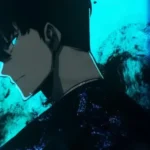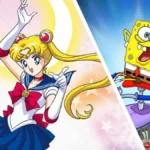Few things are more frustrating than investing time and emotions into an amazing anime, only for the ending to completely drop the ball. Whether it’s a rushed conclusion, unanswered questions, or a finale that just doesn’t do the story justice, these disappointments leave fans scratching their heads (or flipping tables in rage).
In this list, we’re looking at the most disappointing anime endings—the ones that had so much potential but left us thinking, “Wait… that’s it?!” What went wrong? Could they have done it better? Let’s break down the finales that left fans wanting more (for all the wrong reasons). 😩💔
10. White album 2
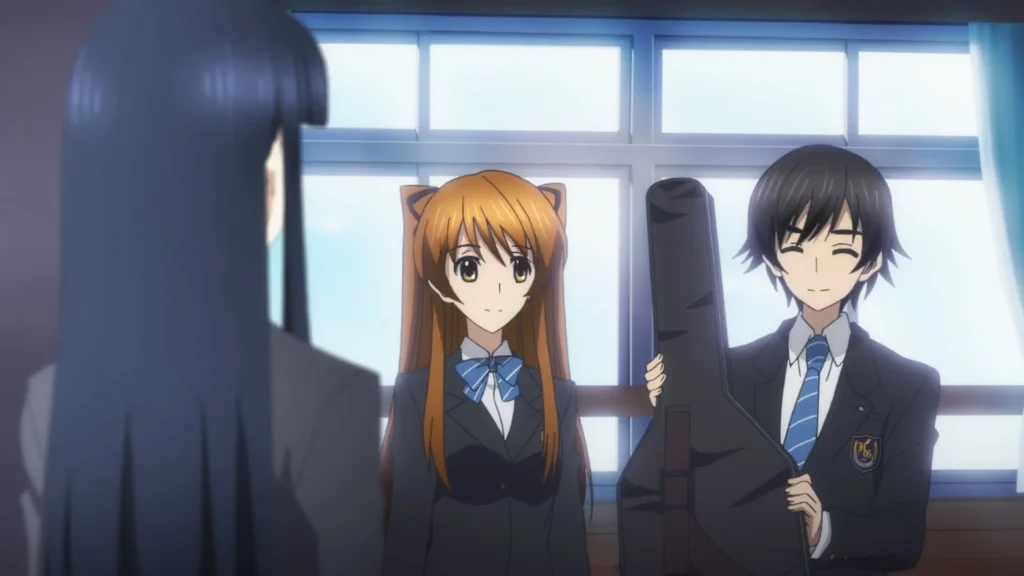
At first, it feels like a soft melody.
Tender. Romantic. Melancholic in the most delicate way.
But as you lean in—
as you fall for the characters and the gentle rhythm of their hearts—
the story shifts.
It hurts.
And by the time it ends?
You’re left not with a conclusion,
but with a silent scream buried beneath snowfall.
Let’s be honest:
White Album 2 wasn’t just a love triangle.
It was a slow emotional collapse.
A tale about unspoken truths, missed timings, and love that came too late.
You saw Haruki struggle with his feelings.
You watched Setsuna fall, deeply and painfully, in love.
And you felt Kazusa—raw, distant, honest Kazusa—yearn in silence.
And when the music stopped?
You didn’t get a clean break.
You didn’t get resolution.
You got emotional wreckage.
No answers.
No peace.
Just three broken hearts walking away in different directions—
and you, the viewer, sitting there with your own cracked chest, whispering:
“That’s it?”
It’s not that the ending was bad in the traditional sense.
It wasn’t rushed.
It wasn’t poorly written.
It was something worse—
It was real.
Too real.
Because in real life, sometimes
the one you love isn’t the one you end up with.
And sometimes, you ruin things so badly, there’s no coming back.
But even knowing that…
We still wanted more.
We wanted forgiveness.
We wanted healing.
We wanted a future, even if it was bittersweet.
Instead, we got silence.
We got parting glances and feelings that would never be fully voiced.
And worst of all?
We got the realization that love—true, painful, life-altering love—
doesn’t always win.
White Album 2 gave us a symphony…
but ended on a single, unresolved note.
And maybe that was the point.
Maybe we were never meant to feel satisfied.
Only haunted.
But if you’ve ever loved someone at the wrong time,
in the wrong way,
or lost them without ever truly letting go—
Then this ending wasn’t just disappointing.
It was devastating.
9. Darling in the Franxx
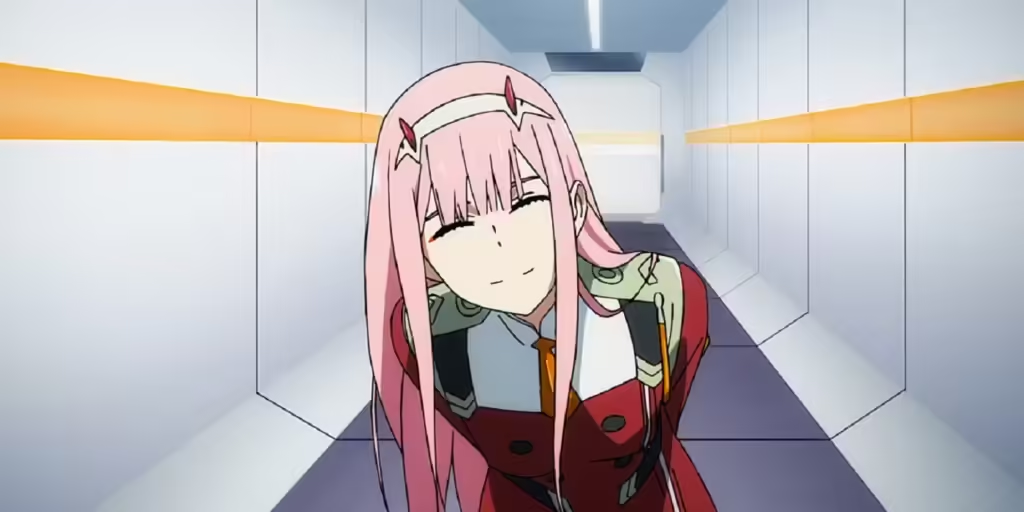
Oh, how high the stars once looked… only to crash and burn in the final stretch.
Darling in the Franxx began as something bold—futuristic dystopia, striking mech designs, rich emotional themes, and a fragile coming-of-age romance surrounded by trauma and existential dread. With a wildly unique world, deeply human characters like Zero Two and Hiro, and heavy undertones of identity, love, and rebellion, it had all the makings of a modern sci-fi masterpiece.
And for a while? It was.
The first half of the series hooked viewers. Fans fell in love with the symbolism, the characters’ vulnerability, and the slow unraveling of a corrupt system. It tackled real questions: What does it mean to live? To love? To be free? The mystery of the world and the “children” piloting the Franxx created a sense of tension and intrigue that made every episode feel like it was leading toward something truly epic.
But then…
It didn’t just stumble—it nose-dived into confusing, rushed, and ultimately alien territory—literally.
When the final arc introduced VIRM, an alien force out of nowhere, everything that had been so tightly built unraveled. Themes were abandoned. Characters lost depth. Instead of focusing on the rebellion against Papa or the evolution of humanity through connection, the plot veered off into outer space. What should’ve been a grounded, emotional climax turned into an intergalactic battle of abstract nonsense.
Zero Two, a powerhouse of emotional storytelling, became a literal spaceship. Hiro’s sacrifice felt disconnected from the soul of the story. And that final reincarnation montage? It felt like a cheap band-aid over a bleeding narrative.
What went wrong?
The ending ignored the heart of what made the series beautiful: its characters.
Instead of resolving their emotional arcs, it swapped soul for spectacle. A love story that started in pain, rebellion, and intimacy ended in outer space, leaving fans confused, unsatisfied, and ultimately, heartbroken—not because it was tragic, but because it was wasted potential.
Darling in the Franxx will always be remembered—but for many, it’s the anime that could’ve been legendary, had it just stayed true to itself.
8. Charlotte
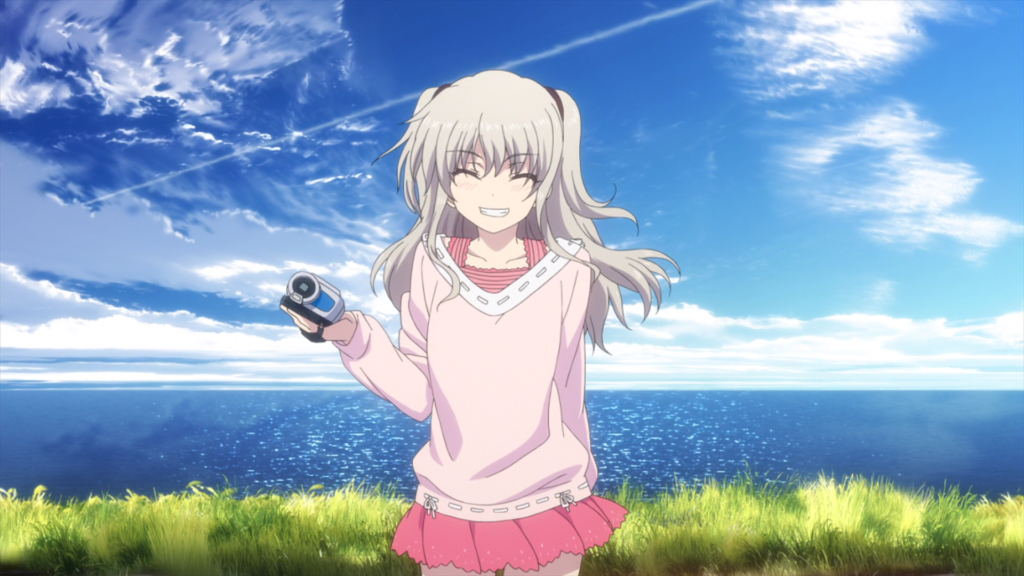
Some anime make you feel like you’ve found a hidden gem—raw, emotional, and just a little messy in the best way. Charlotte was one of those. It pulled you in with a curious concept: teenagers with superpowers that are flawed, temporary, or incomplete. It had a unique twist—abilities that came at a cost, grounded in real consequences. The tone was quirky, sometimes funny, sometimes painful, but always brimming with potential.
And then, just as it started to bloom into something bigger…
It lost itself.
The early episodes felt like a soft slice-of-life with a supernatural edge. Yuu was a mess of a protagonist—arrogant, reckless, and a little too clever. But the moment tragedy hit—Ayumi’s death—everything shifted. The heartbreak was real. That was the turning point, the promise of something deeper. And we got a glimpse of it. Yuu spiraling into grief, isolation, and rage? It was raw and so human. We were ready for more.
But Charlotte didn’t trust its own pacing.
It sprinted when it should have breathed.
Instead of letting Yuu’s pain linger and evolve, the story rushed into a wild, global plotline of power users, conspiracies, and time travel. It kept getting bigger, but not better. And by the time we reached the end, it felt like the show had bitten off way more than it could handle.
The finale—Yuu deciding to absorb every ability in the world, losing his memories, and flying solo on a world-saving journey—should have been powerful. But it was crammed into a single episode. One episode to save the world. One episode to forget the people he loved. One episode to forget himself.
And sure, he technically gets a “happy” ending. He returns, blank and broken, only to be hugged back into life. But it didn’t feel like a victory. It felt… hollow.
Because all that emotion, all that buildup—it deserved space.
It deserved time to breathe, to hurt, to heal.
Charlotte wasn’t bad.
It was almost beautiful.
But in trying to do everything, it forgot to do the one thing that mattered most:
Let us feel it.
And that’s what makes its ending one of the most disappointing. Not because it didn’t try—but because it almost made magic… and let it slip away.
7. The Promises Neverland
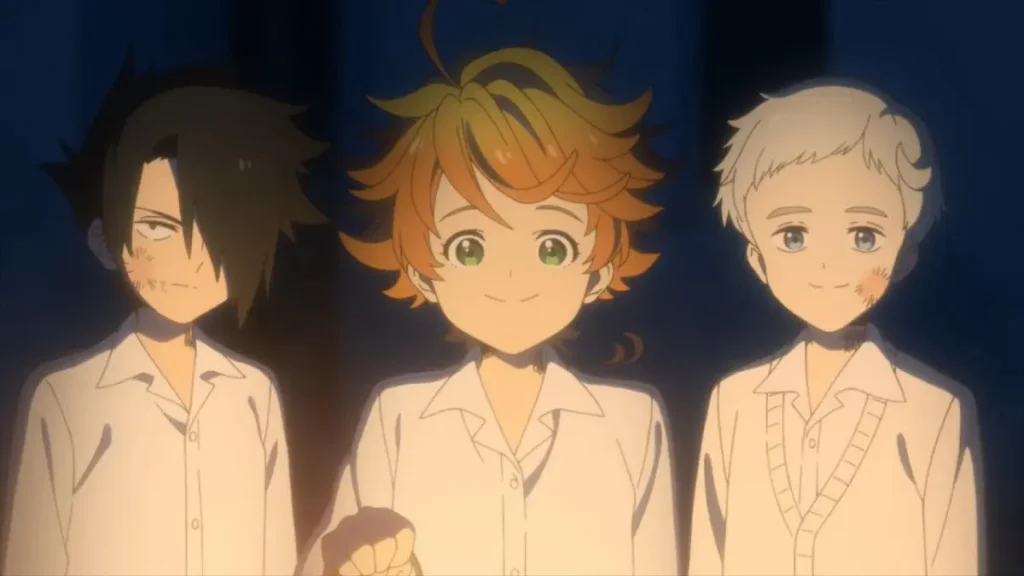
It hurts more when you see something brilliant—something you truly believed in—crumble in front of you.
And The Promised Neverland?
That one still stings.
Season one was unforgettable. It was masterfully written, eerie, gripping, emotional, and full of life despite the horrors that lived just beneath the surface. We fell in love with these kids—Emma, Norman, Ray. Not just because they were smart or brave, but because they were children trying to outthink monsters, holding on to hope in a world that wanted to eat them alive—literally.
Every moment in Grace Field House felt tense. Every smile from Mama Isabella felt like a loaded gun. The slow-burn mystery, the tight psychological games, the sheer desperation of escape—it all felt so alive.
You could feel the heartbeat of the story in every scene.
And then… season two.
Season two wasn’t just disappointing.
It was a tragedy—not of fiction, but of storytelling choices.
Everything that made the show powerful—the dread, the stakes, the character development, the world-building—was brushed aside for a rushed slideshow of events. Literally. By the end, it became a montage. Huge story arcs from the manga were skipped. Deep, horrifying truths about the demon world? Gone. Important characters with emotional impact? Never introduced. Conflicts that took chapters to build and break in the manga were now condensed into five-second flashbacks.
We didn’t watch Emma struggle.
We didn’t feel Ray question.
We didn’t get to see Norman’s darkness fully play out.
Instead, we were told:
“Trust us, it all worked out.”
The Promised Neverland deserved better.
These characters fought for their freedom. They earned every breath of survival.
But the anime didn’t give them the journey they were promised.
And we, as fans, were robbed of the fear, the hope, the pain—the very soul of the story.
The final scenes? Emma smiling with the kids, everyone safe and happy.
But it didn’t feel earned. It didn’t feel real.
It felt like someone turned the page and skipped to the last chapter just to get it over with.
And that’s the kind of ending that doesn’t just disappoint.
It breaks your trust.
Because this story could’ve been legendary.
But in the rush to escape its own brilliance, it forgot the most important truth:
The journey matters.
6. School Days
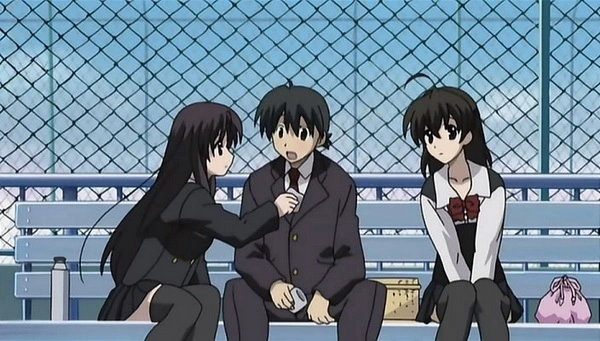
Let’s be real: School Days never pretended to be wholesome.
From episode one, something just felt… off.
It was messy, emotionally unstable, and constantly teetering on the edge of “what the hell am I watching?” But even with that unease, we kept watching—because something about it felt painfully real. The awkward tension of teenage desire. The tangled web of feelings no one knew how to handle. The fear of rejection. The confusion of love turned obsession.
And in a twisted way, it had potential. It could’ve been a bold story about emotional immaturity, toxic love, and the consequences of using people to fill your own emptiness.
But what did we get instead?
A slow spiral into madness… with an ending that didn’t shock—it traumatized.
Makoto, our so-called “protagonist,” goes from shy teen to full-blown manipulative disaster, leaving a trail of broken hearts and ruined friendships. And instead of exploring the wreckage of those choices, the story leans into pure chaos. It pushes characters past the edge without ever really unpacking why.
By the time we get to that infamous ending, it’s not emotional—it’s grotesque.
Sekai, broken and unstable, kills Makoto.
Then Kotonoha, in the most horrifying scene imaginable, decapitates his body and cradles his head on a boat like a twisted love trophy.
And that’s how it ends.
Not with closure.
Not with reflection.
Just shock value, blood, and a hollow sense of “you asked for it.”
What went wrong?
The story gave up on humanity.
Instead of showing how emotional pain can scar us, or how betrayal breaks people in quiet ways, it turned the whole thing into a circus of violence. And while it’s memorable—it’s for all the wrong reasons.
School Days didn’t disappoint because it was tragic.
It disappointed because it forgot that tragedy only hits hard when you still care.
And by the time that final scene rolled around, most of us didn’t feel heartbreak.
We just felt sick.
5. Oreimo (My Little Sister Can’t Be This Cute)
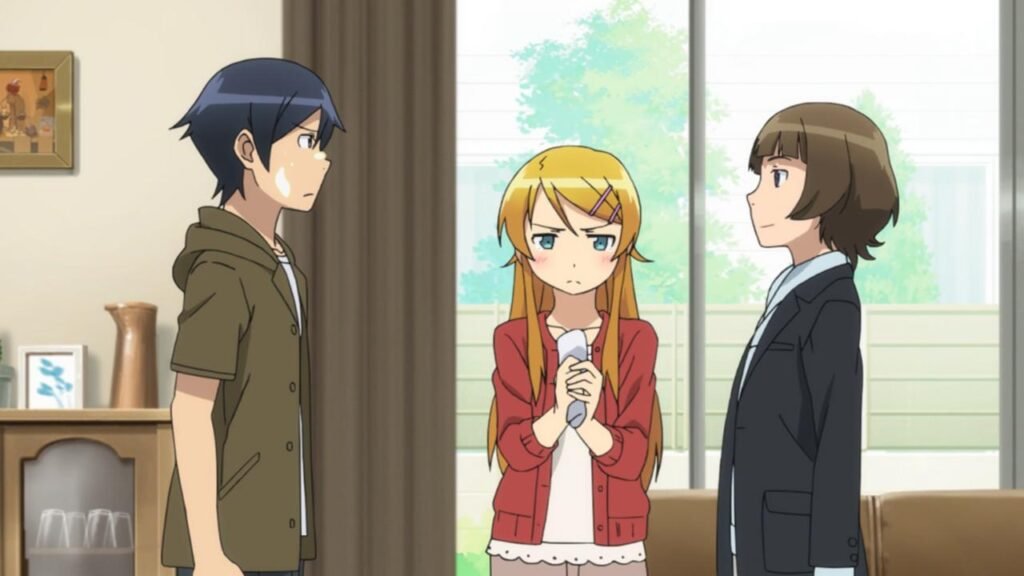
You know that feeling when a story plays with fire—and then just straight up jumps into it?
Yeah. That’s Oreimo.
At first, it felt like a quirky, weirdly entertaining slice-of-life. Kyousuke and Kirino’s dynamic was questionable, sure, but the show balanced it with humor, subculture charm, and oddly sweet moments. It tiptoed the line between taboo and comedy, and for a while, it worked. It was bold. Risky. Kind of endearing, even.
But we all thought, deep down, it’s just bait.
Right?
Surely, this won’t actually go there.
And then…
It did.
After building up a cast of lovable side characters—Kuroneko, a fan-favorite with actual depth and romantic potential, Saori, Ayase—the story steered past every natural, emotionally earned route and said:
“Let’s have the step-siblings get married.”
Not metaphorically.
Not as a joke.
They literally have a wedding ceremony—vows and rings included.
And sure, the show tries to walk it back at the last second, saying, “It’s just pretend, we’ll go back to being normal siblings after this,” but by then… the damage is done. It feels like the writers knew exactly how explosive it was, and instead of exploring something complex or healing, they chased shock and sank the whole ship.
What makes it worse?
Kuroneko’s arc was filled with so much real emotion. Her heartbreak, her letter to Kyousuke, the slow burn of her feelings—all of it thrown away for a pairing that felt more like a dare than a decision.
It didn’t feel rebellious.
It felt like betrayal.
Because beneath the fanservice and controversy, there was a story here about growing up, about distance between siblings, about identity and finding connection in unlikely places.
But in the end, Oreimo took all the complicated emotions it stirred up… and used them to justify a final act that wasn’t just tone-deaf—it felt empty.
And that’s why it’s one of the most disappointing anime endings out there.
Not because it went too far.
But because it could’ve been so much more—and chose the most unbelievable route just to be remembered.
Mission accomplished.
We remember.
Just… not for the right reasons.
4. Tokyo Ghoul Route
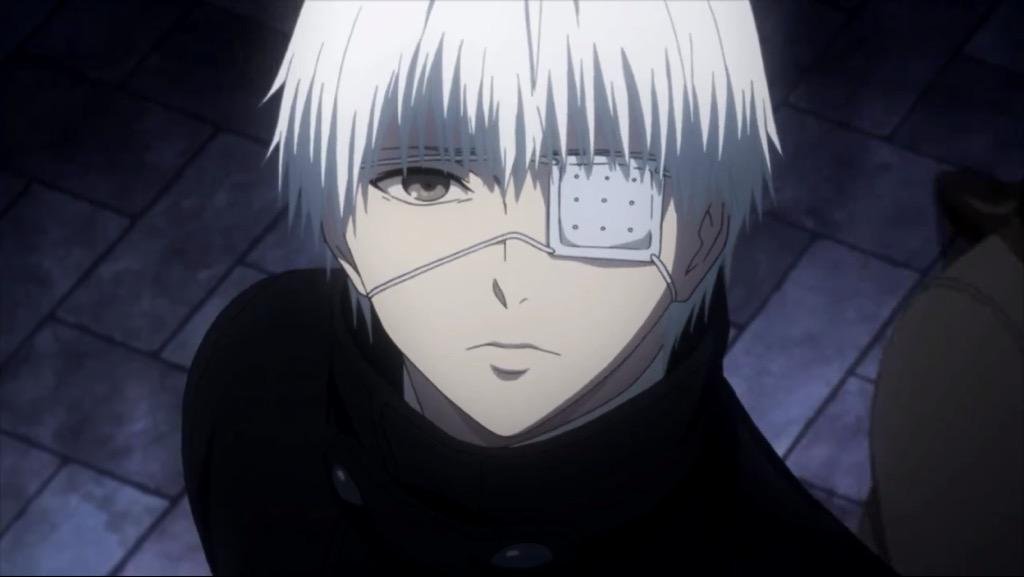
When the first season of Tokyo Ghoul ended, fans were stunned—in the best way.
That brutal, poetic walk into Kaneki’s descent? The hair turning white, the cold resolve, that agonizing, symbolic chair scene? Chills.
The anime had clawed its way through pain, fear, and identity crisis, and by the end, it left us shaken—but ready.
We were ready for Kaneki’s rise.
We were ready for the rebellion.
We were ready to watch him own his pain and protect those he loved.
And then… √A happened.
At first, it looked bold. The marketing hyped it as an anime-original path, with Kaneki joining Aogiri Tree—supposedly turning his back on Anteiku to go deep undercover. And honestly? That idea could’ve worked. That kind of emotional conflict had power.
But they didn’t follow through.
The season became silent, both literally and emotionally. Kaneki barely spoke. His relationships—so central to the story—faded into shadows. Characters we were once so invested in were shoved aside or left behind. And the pacing? A foggy, dragging, confusing mess. The show became obsessed with brooding atmosphere and cryptic imagery, sacrificing emotional clarity for artistic shots that meant nothing without context.
We didn’t get development.
We got disconnection.
And then came the final episode.
The battle at Anteiku should’ve been devastating. It should’ve been the climax of everything—Kaneki’s pain, his regrets, his choices. But it just… fizzled. There was no punch, no catharsis. Just Kaneki walking silently through snow, holding a body, toward a fate that felt more like a shrug than a statement.
We weren’t left broken.
We were left confused.
What went wrong?
They muted the very voice that made Tokyo Ghoul matter. Kaneki’s voice. His struggle to understand what it means to be human—or to no longer be one. Instead of bringing us deeper into his heart, √A pushed us further away.
It’s not just that the ending was disappointing.
It’s that the journey there felt like a ghost of what it should’ve been.
Tokyo Ghoul had brilliance in its bones. But Route A proved that even powerful stories can fall apart if you forget to let the characters feel—and if you forget to let us feel with them.
3. Cyberpunk Edgerunners
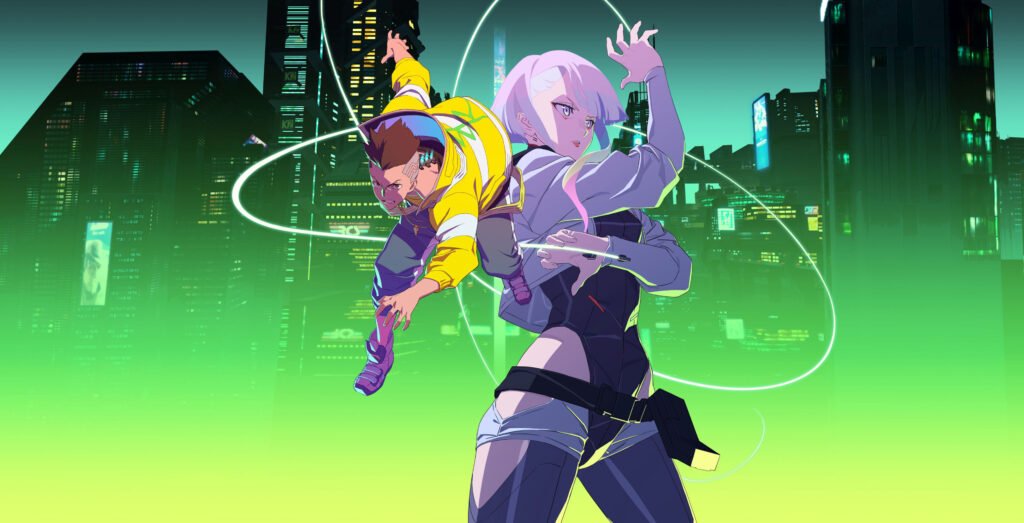
Okay—let’s be clear right out of the gate:
Cyberpunk: Edgerunners wasn’t bad.
In fact, it was beautiful. Visually stunning. Emotionally gripping. Full of energy, pain, neon-soaked dreams, and raw humanity.
But that’s exactly what makes the ending hit so hard—not because it was poorly written…
But because it felt like the show gave up on hope.
David Martinez wasn’t trying to be a legend.
He just wanted to survive.
To belong.
To find a place in a world that chewed people up and spat them out the second they didn’t fit the corpo mold. And when he found Lucy, he found something even rarer than cyberware upgrades: a reason to dream.
Their bond was fragile but real. Two broken kids under flickering city lights, just wanting to reach the moon.
But Edgerunners made a choice—a brutal, cynical choice—to remind us that in Night City, no one escapes the system.
David’s slow descent into chrome addiction, his body breaking under the weight of expectations and metal, felt tragic but inevitable. That’s the pain. That’s what makes the ending disappointing—not in execution, but in spirit. Because in a world where we root for the underdogs, Edgerunners told us loud and clear:
“Dreams don’t survive here.”
David dies.
Gloria’s sacrifice? Meaningless.
Maine’s leadership? Forgotten.
Rebecca? Gone, without even a pause.
And Lucy? She reaches the moon. Alone. Quiet. Crying in zero gravity while remembering the boy who said he’d take her there.
It’s poetic.
It’s haunting.
It’s well-written.
But damn if it doesn’t leave you cold and hollow.
What went wrong?
It wasn’t the animation. It wasn’t the pacing. It wasn’t even the writing.
What went wrong was that Edgerunners offered us love, hope, and found family—and then tore it all away, leaving nothing but silence and stars.
Some fans argue that it fits the Cyberpunk genre. That Night City was never meant for happy endings.
And sure—maybe that’s the point.
But here’s the thing:
We didn’t fall in love with this show just because of its violence or grit.
We fell in love because of David and Lucy. Because of what they could’ve had. Because in all that chaos, they made each other human.
So when the credits rolled and the moon turned blue, we weren’t just heartbroken.
We were angry.
Because deep down, we didn’t want a cyberpunk tragedy.
We just wanted them to make it out.
2. Plastic Memories
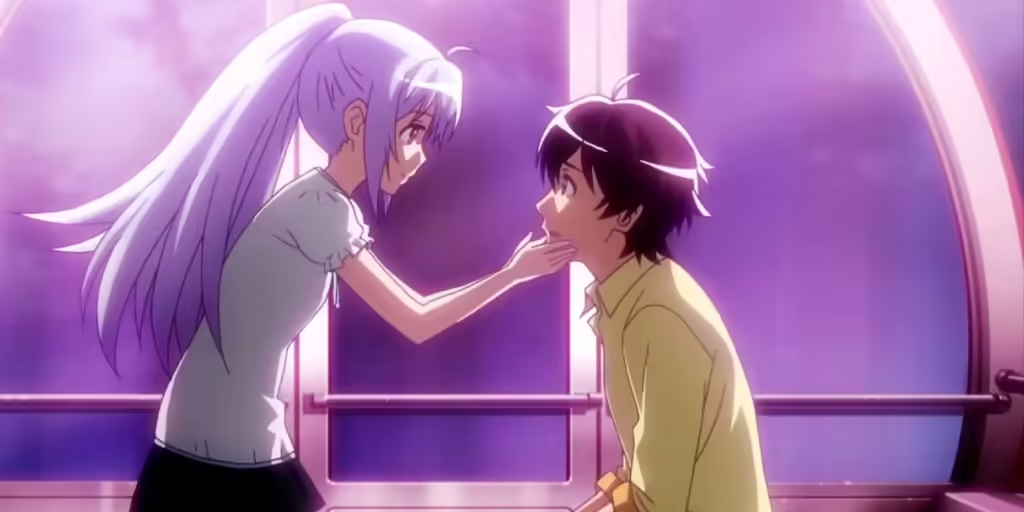
You know the kind of sadness that creeps in quietly? The kind that doesn’t scream—it whispers?
That’s Plastic Memories.
This anime didn’t need high-stakes battles or apocalyptic stakes. It gave us something far more human: a love story with a countdown clock. In a world where androids called Giftias live among humans—but only for a limited time—Tsukasa meets Isla, a Giftia with only a few months left to “live.”
And we all knew what was coming.
From the moment she smiled at him with those soft, tired eyes, we knew how it would end.
But we hoped anyway.
The show was never shy about Isla’s fate. It told us, straight-up, that she didn’t have long. Yet, somehow, we still fell in love with her. With her quiet awkwardness. Her gentle humor. Her fear of getting close because she didn’t want to hurt—or be hurt.
And when Tsukasa finally said those words—when he chose to love her anyway—it felt like something real.
Not a love story meant to last forever…
But one meant to matter while it could.
So… what went wrong?
Honestly, it wasn’t the concept. It wasn’t even the pacing.
What went wrong was that Plastic Memories chose inevitability over impact.
The final episodes were tender. Soft. Beautiful, in a bittersweet way. But they were also safe.
There was no twist, no deeper revelation. Isla says goodbye, disappears, and the world moves on.
And it hurts. But not the kind of hurt that lingers in your bones.
More like the kind that fades too quickly.
We didn’t get to see Tsukasa fall apart.
We didn’t get to see what their love changed in him—or in the world.
Isla, who taught us all how to say goodbye, just… vanishes. And then the show tiptoes to the credits without shaking the ground like it could have.
What could have been a monumental emotional climax ended up feeling like a soft sigh into the night. And sometimes, that subtlety works.
But here?
It left us wanting more.
More closure.
More grief.
More reason to believe that their love—even if short-lived—meant something permanent.
Because if love is worth fighting for, even when it has an expiration date…
Shouldn’t the ending make us feel like we were right to believe?
1. Attack On Titan
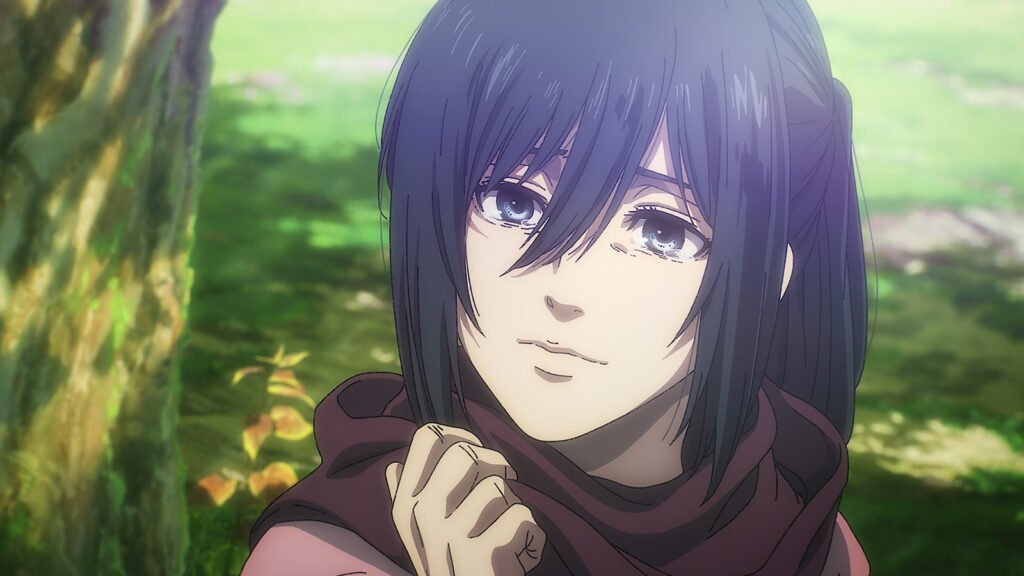
Oh boy. This one is monumental.
We’re talking about one of the most ambitious anime of all time…
…ending in one of the most divisive, bittersweet, and disappointing ways ever seen.
What happens when you build a masterpiece for a decade—only to lose your grip right before the finish line?
That’s the question that haunts Attack on Titan fans to this day.
For years, this anime had us hooked.
Political conspiracies. Human tragedy. Colossal betrayals. Complex characters constantly shifting between hero and villain. It wasn’t just dark—it was brilliantly layered. And at the center of it all was Eren Yeager, a boy driven by rage, by grief, by a desire for freedom so intense it scorched everything around him.
From the outside, it looked like a classic shounen.
From the inside?
It was a slow-burn into one of the bleakest, most human, and most devastating stories anime has ever told.
And then… the final chapter came.
Eren commits genocide. The Rumbling—a nightmare of global destruction—takes center stage. People die. The world burns. And when the dust settles, we get a scene that shocked everyone…
Eren, breaking down and sobbing, saying he didn’t know why he did it.
That he didn’t want Mikasa to love anyone else.
That he was selfish.
Just like that, the cold mastermind—the god of death and freedom—was reduced to a confused, crying boy in love. And Mikasa? She ends his life with a kiss, both executioner and lover, and walks away into a future that never truly heals.
It was… confusing.
Not because it didn’t make sense. But because it didn’t feel earned.
For a story so focused on breaking cycles, the finale showed us that the world didn’t change.
Titans came back. War never truly ended. And Eren’s sacrifice?
It wasn’t noble.
It wasn’t even clear.
It just was.
What went wrong?
Attack on Titan’s ending forgot what made it powerful: conviction.
Eren’s arc—once sharp and terrifying—crumbled under mixed messaging. Was he a martyr? A monster? A victim? A jealous teen? The writing tried to be everything at once… and became nothing.
And the rest of the cast?
So many of them were sidelined or given rushed conclusions. Characters we grew with for years were folded into vague symbolism or soft epilogues that didn’t carry the emotional weight we were promised.
We wanted closure.
We got confusion.
We wanted fire.
We got a flicker.
And maybe that was the point. Maybe Attack on Titan always wanted to show that there are no heroes, no perfect answers.
But after everything—after all the deaths, the sacrifices, the revelations—we deserved an ending that stood tall.
Instead, we got one that knelt in front of the mirror, unsure of what it even was.





